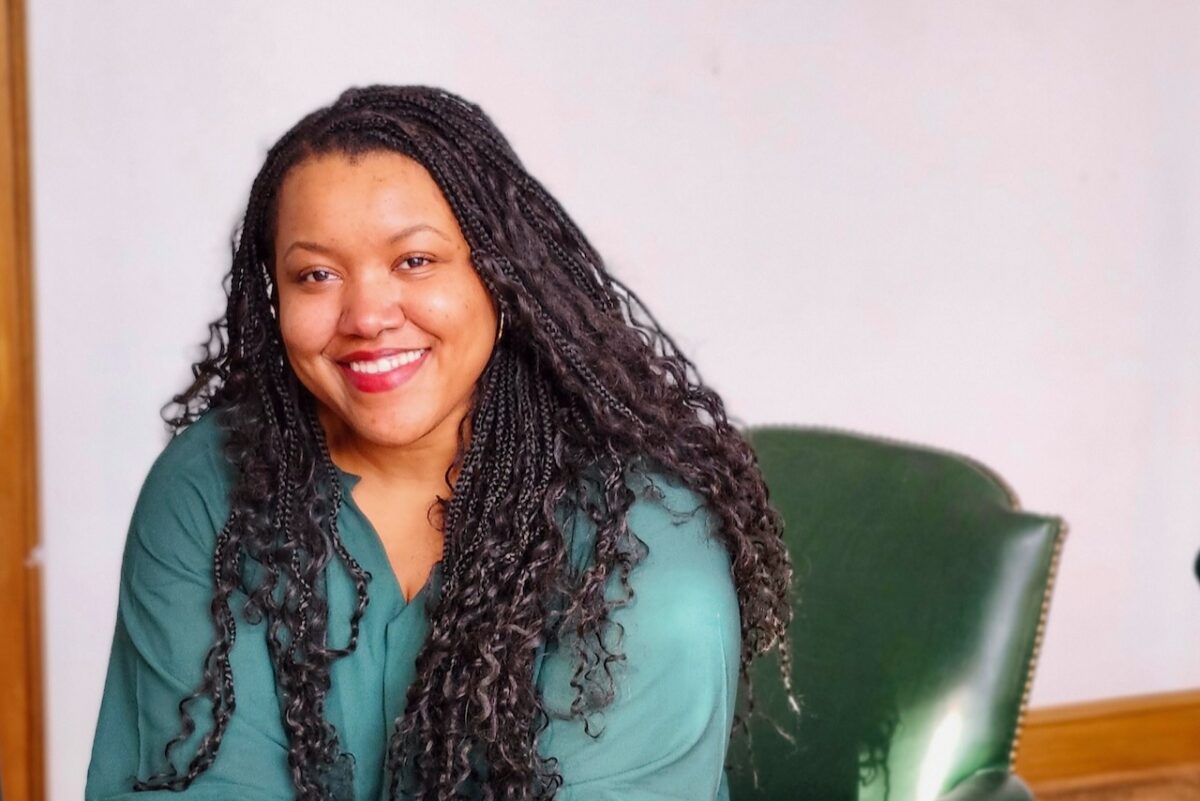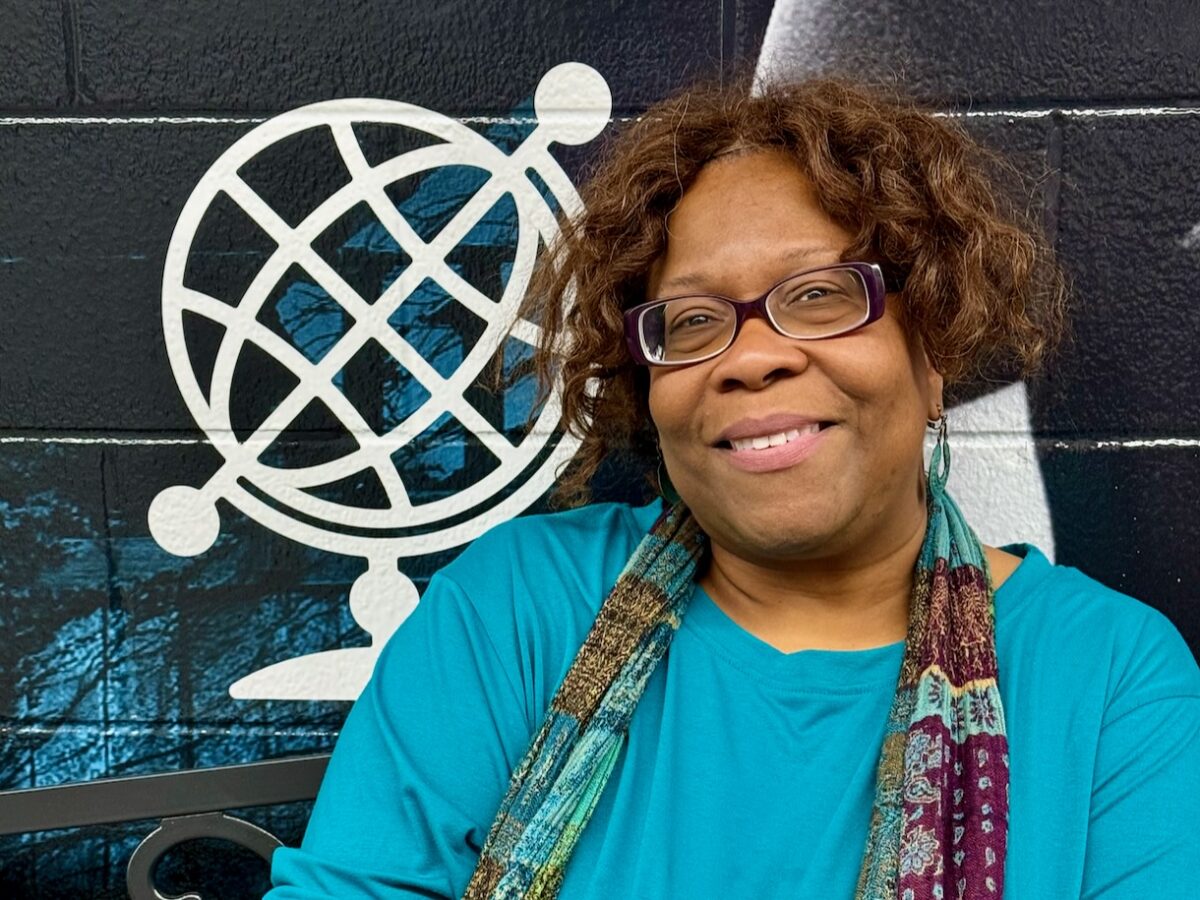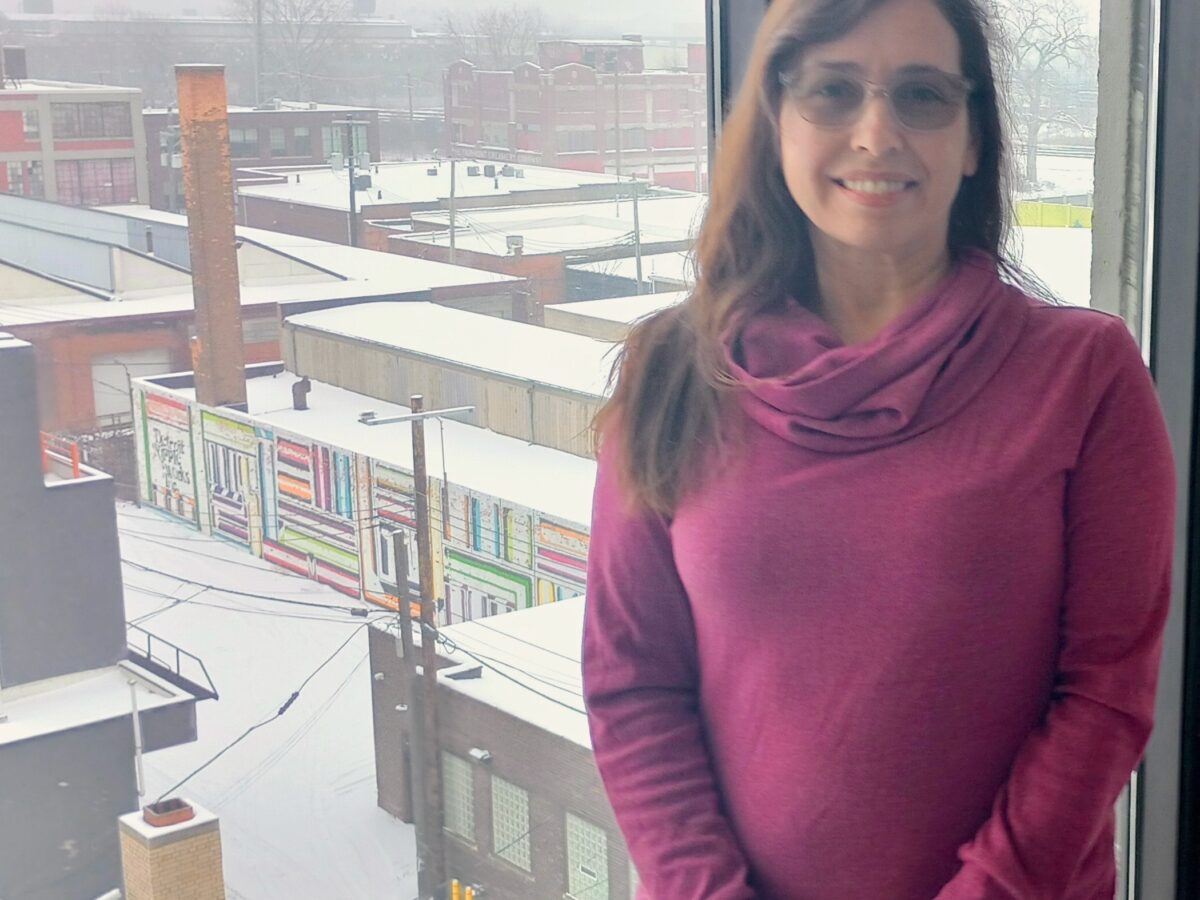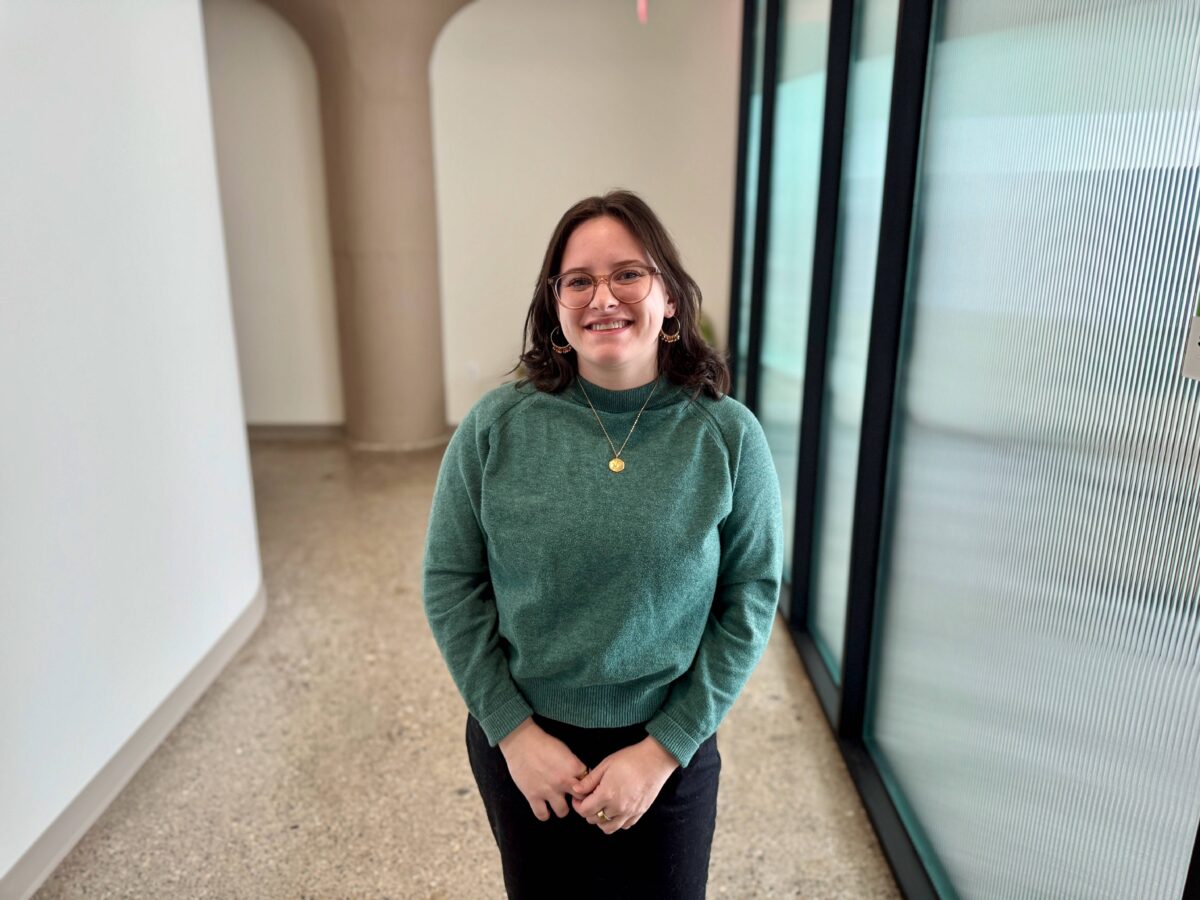Overview:
-Akilah Russell says her participation in the spring 2025 Planet Detroit Neighborhood Reporting Lab reflects a lifelong love of writing.
-Good stories can come out of preconceived notions being dispelled by the facts, Russell says.
This story is published as part of Planet Detroit’s 2025 Spring Neighborhood Reporting Lab, supported by The Kresge Foundation, to train community-based writers in profile writing. This year’s participants will focus on highlighting grassroots leaders driving positive change in Metro Detroit.
Akilah Russell is a native Detroiter with a lifelong habit of writing things down: her house is full of journals dating back to elementary school. As a communications specialist and administrative professional at a northwest Detroit educational nonprofit, Russell says she sees how listening, connecting people to resources, and sharing stories can make an impact.
Journalism as a natural extension of those interests and an opportunity to turn everyday conversations into something bigger, in Russell’s view. As a reporter for the Planet Detroit Neighborhood Reporting Lab, she’s excited to explore the city through a new lens and share the stories that deserve a wider audience.
What inspired you to become a Planet Detroit reporter?
This opportunity provides me the chance to merge my personal and professional interests. I am someone who has volumes of journals dating back to probably elementary school archived in my house right now, so I’ve always had a penchant for writing. I also enjoy talking to people, and in analyzing conversations that I’ve had with family, friends, neighbors, strangers at the bus stop, I’ve come to realize that some of these things need a larger audience and need to become a broader conversation. This seems like a perfect
opportunity for me to marry those two worlds together.
What community issue are you most passionate about?
The first thing that comes to mind is housing. But even as I say that, it feels like more of an umbrella term when I really mean resource distribution. I don’t see how you can talk about housing without talking about food, water, access to jobs, transportation, and health care. Housing for many Detroiters continues to be a critical issue. I choose housing because it encompasses all of our other basic human needs, and I am intimately aware of the peace that comes from having access to a safe, affordable place to lay one’s head.
What kinds of stories resonate with you most?
The stories I admire most feature people who have mastered the art of doing what they have to do without letting the weight of it all get them down too bad. I love stories about folks who insist on finding, or creating, pleasure at every turn.
What excites you about storytelling?
I am excited about the exploration of it all, and all of the moments where I’m bound to be proven wrong. I think it’s a very human thing to go into something that you’ve already expressed interest in with a preconceived notion, but I think good stories are born of those instances when that preconceived notion is dispelled by the actual facts, giving you room to explore an entirely new world.
MORE FROM THE NEIGHBORHOOD REPORTING LAB
Leah Samuel’s journalism career began with watching Walter Cronkite. Her work gives a voice to the voiceless.
Leah Samuel, a journalist dedicated to amplifying marginalized voices, says anyone can tell their own story. Meet Planet Detroit’s 2025 Neighborhood Reporters in this Q&A series, written by Neighborhood Reporters.
A Detroiter teaches Mandarin Chinese. A love of learning fuels her journey.
Carissa Welton, a foreign language teacher at Detroit Waldorf School, is spearheading a new program for students to learn Mandarin Chinese. Meet Planet Detroit’s 2025 Neighborhood Reporters in this Q&A series, written by Neighborhood Reporters.
Environmental justice starts at home, says Shayla Zimmerman. A Detroit flood started her career trajectory.
Shayla Zimmerman, environmental advocate since 15, focuses on community organizing and nonprofit empowerment. Meet Planet Detroit’s 2025 Neighborhood Reporters in this Q&A series, written by Neighborhood Reporters.
How do you think that we can empower more residents to become neighborhood storytellers?
You start by giving people the opportunity to be truly seen, no matter their story. This recognition creates a ripple effect — those who have been illuminated go on to shine their light on others. Then, you equip them with the skills, resources, and opportunities to amplify their impact even further.
Can you remember the first story you read?
I’m sure the books I started learning to read with were Dr. Seuss books, probably “The Cat in the Hat.” The first book I remember reading on my own, and actually absorbing the plot of, was one of my sisters’ R.L. Stine “Fear Street” books, “The Best Friend.”
What impact do you hope your reporting will have?
I want my writing to make people think twice: about what they see, what they believe, and the narratives they’ve accepted as truth. But more than that, I want them to feel good about it. Reflection doesn’t have to be uncomfortable; it can be empowering. If my work encourages people to question, to reconsider, and to find a different connection to the world around them, then I’m happy with the work I’ve done.





